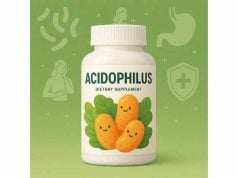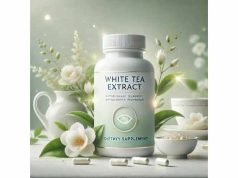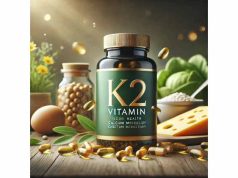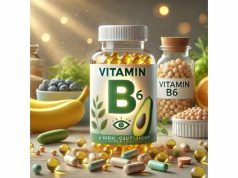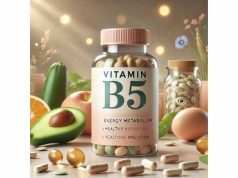
Elderberry (Sambucus nigra) is a time-honored herbal remedy known for its robust antioxidant and anti-inflammatory properties. Traditionally celebrated for boosting immune function and overall vitality, emerging evidence suggests it may also support eye health. With a rich concentration of flavonoids, anthocyanins, and other bioactive compounds, elderberry is believed to protect delicate ocular tissues from oxidative damage, enhance retinal function, and improve circulation in the eyes. In this article, we explore what elderberry is, how it can enhance vision, its key eye health benefits, practical usage tips, and the scientific research backing these claims.
Table of Contents
- Elderberry Essentials: Understanding This Powerful Supplement
- Mechanisms Through Which Elderberry Enhances Vision
- Primary Eye Health Benefits of Elderberry
- Practical Guidelines for Using Elderberry for Vision Support
- Scientific Evidence and Research on Elderberry and Ocular Health
- Elderberry FAQs on Vision Improvement
- References and Sources
Elderberry Essentials: Understanding This Powerful Supplement
Elderberry, derived from the Sambucus nigra plant, is widely recognized for its deep purple berries and distinctive flavor. Traditionally used in European and Native American herbal medicine, elderberry has been valued for centuries as a natural remedy for colds, flu, and inflammation. The berries, along with the flowers and leaves, contain a potent mix of antioxidants, vitamins, and anthocyanins that contribute to overall health. Recently, attention has turned to elderberry’s potential in eye care. Its robust antioxidant profile may help neutralize free radicals, protect ocular tissues from oxidative stress, and support healthy blood flow to the retina and other critical parts of the eye.
Historically, elderberry has been prepared as syrups, teas, or tinctures. Modern dietary supplements now offer standardized extracts, ensuring a consistent level of active compounds. Elderberry’s unique composition makes it an appealing natural option for those seeking to maintain or improve vision, especially in an era of increased screen exposure and environmental pollutants.
Moreover, the synergy of elderberry’s bioactive components not only supports immune function but may also promote the health of delicate ocular structures. This holistic approach to eye health positions elderberry as a versatile supplement that addresses both general wellness and specific visual needs.
Mechanisms Through Which Elderberry Enhances Vision
Elderberry’s potential to improve vision is rooted in several biochemical mechanisms. Its high antioxidant content, particularly anthocyanins, plays a central role in neutralizing harmful free radicals that damage ocular cells. Oxidative stress is a key factor in many age-related eye disorders; thus, reducing it can help maintain clarity and function in the eyes.
Antioxidant Protection
- Free Radical Scavenging:
Elderberry contains powerful anthocyanins and flavonoids that act as free radical scavengers. These compounds help protect the lens, retina, and surrounding tissues from oxidative damage, which is often exacerbated by prolonged exposure to blue light and UV rays. - Preservation of Cellular Integrity:
By minimizing oxidative stress, elderberry supports the integrity of cell membranes in ocular tissues. This protection is crucial for maintaining the transparency of the lens and the functionality of retinal cells.
Anti-Inflammatory Effects
- Reduction of Inflammatory Markers:
Chronic inflammation in the eye can lead to conditions such as dry eye syndrome and age-related macular degeneration (AMD). Elderberry’s bioactive compounds have been shown to suppress pro-inflammatory cytokines, reducing inflammation and creating a healthier environment for ocular cells. - Improved Tear Film Stability:
Inflammation can disrupt the tear film that lubricates the eyes, leading to discomfort and blurred vision. Elderberry may help stabilize the tear film, ensuring that the eyes remain moist and reducing irritation caused by extended screen time or environmental factors.
Enhanced Microcirculation
- Vascular Support:
Healthy blood flow is essential for delivering nutrients and oxygen to the retina and other parts of the eye. Elderberry has been linked to improved microcirculation, which can help reinforce the integrity of tiny blood vessels in the ocular region. Better circulation ensures that retinal cells receive adequate nourishment and removes metabolic waste more efficiently. - Retinal Protection:
With improved microvascular function, the retina is better protected from degenerative changes that can lead to vision loss. By supporting vascular health, elderberry contributes to the overall maintenance of a healthy retina.
Neuroprotective Benefits
- Optic Nerve Support:
The optic nerve, responsible for transmitting visual information from the retina to the brain, is vulnerable to damage from oxidative stress. Elderberry’s antioxidant properties may help shield the optic nerve, preserving the quality of visual signals and ensuring clearer vision. - Cellular Signaling Modulation:
Emerging research suggests that elderberry may influence cellular signaling pathways that are crucial for cell survival and repair. This modulation can support the natural regeneration of ocular tissues, further contributing to sustained vision quality.
By targeting multiple pathways—antioxidant defense, anti-inflammatory effects, enhanced microcirculation, and neuroprotection—elderberry creates a comprehensive approach to eye health. This multifaceted mechanism underscores why elderberry is being explored as a natural supplement for vision improvement.
Primary Eye Health Benefits of Elderberry
Elderberry offers a range of benefits for eye health, derived from its rich profile of antioxidants and anti-inflammatory compounds. Here, we detail the primary advantages that regular consumption of elderberry may provide for those seeking to maintain or improve their vision.
1. Protection Against Oxidative Damage
- Shielding Retinal Cells:
The retina is particularly sensitive to oxidative stress. Elderberry’s high anthocyanin content helps neutralize free radicals, reducing the likelihood of retinal cell damage and potentially lowering the risk of degenerative eye diseases. - Preserving Lens Clarity:
Oxidative stress is a major factor in the formation of cataracts. By minimizing oxidative damage, elderberry may help maintain the transparency of the lens, contributing to clearer vision as you age.
2. Reduction of Ocular Inflammation
- Easing Eye Irritation:
Chronic low-level inflammation can lead to discomfort, redness, and blurred vision. Elderberry’s anti-inflammatory properties help modulate the body’s inflammatory response, reducing irritation and supporting overall eye comfort. - Supporting Tear Film Health:
Inflammation often disrupts the stability of the tear film, leading to dryness and strain. Elderberry may promote a balanced tear film, thereby improving lubrication and reducing symptoms of digital eye strain.
3. Enhanced Microcirculation and Nutrient Delivery
- Improved Blood Flow:
Better microcirculation means that essential nutrients and oxygen reach the retinal cells more effectively. Elderberry supports vascular health, which is critical for maintaining a vibrant and functional retina. - Prevention of Microvascular Damage:
Consistent use of elderberry might help protect the fine capillaries in the eyes from damage, ensuring that vision remains sharp and that the risk of conditions like diabetic retinopathy is minimized.
4. Neuroprotective Support for the Optic Nerve
- Preservation of Visual Signals:
The optic nerve plays a vital role in transmitting visual information to the brain. Elderberry’s neuroprotective effects may help safeguard the optic nerve against oxidative stress, maintaining the clarity and precision of visual signals. - Enhancement of Neural Health:
By potentially supporting cellular repair processes and modulating neural signaling, elderberry could contribute to the overall resilience of the eye’s neural network, supporting long-term vision quality.
5. Synergistic Impact with a Healthy Diet
- Complementary Effects:
When integrated into a balanced diet rich in fruits, vegetables, and other eye-friendly nutrients like lutein and zeaxanthin, elderberry can amplify the overall protective effect on the eyes. - Holistic Wellness:
The systemic benefits of elderberry—such as improved immune function and enhanced cardiovascular health—indirectly support ocular health, making it a valuable component of a comprehensive vision care regimen.
Overall, elderberry’s ability to reduce oxidative stress, combat inflammation, and support vascular and neural health makes it an appealing supplement for those aiming to maintain clear, sharp vision. Whether used alone or in combination with other ocular nutrients, elderberry stands out as a natural option for enhancing eye health.
Practical Guidelines for Using Elderberry for Vision Support
Integrating elderberry into your daily routine can be straightforward and highly effective when done correctly. Here are practical guidelines to help you maximize its benefits for eye health.
Selecting the Right Form of Elderberry
- Capsules and Tablets
- Standardized Extracts: Choose products that list standardized concentrations of active compounds such as anthocyanins. This ensures consistency in dosing and effectiveness.
- Convenience and Portability: Capsules and tablets are ideal for those who prefer a quick, hassle-free method of supplementation.
- Liquid Extracts and Tinctures
- Rapid Absorption: Liquid forms of elderberry are absorbed more quickly by the body, which may be beneficial for those seeking immediate antioxidant support.
- Versatility in Use: These can be added to water, smoothies, or teas, making it easier to incorporate elderberry into your daily routine.
- Powdered Forms
- Mix with Foods or Beverages: Elderberry powder can be blended into yogurt, oatmeal, or protein shakes. This method is particularly appealing if you enjoy natural, whole-food approaches.
- Customizable Dosage: Powder allows for flexible dosing, though care should be taken to measure accurately.
Recommended Dosage and Timing
- General Guidelines:
While specific dosages may vary by product, many elderberry supplements recommend a daily intake of 500 mg to 1500 mg of standardized extract. Begin at a lower dose to assess tolerance. - Split Dosing for Steady Benefits:
Dividing your total daily dose into two or three smaller servings (morning, afternoon, and evening) may help maintain consistent blood levels of active compounds, providing continuous ocular support. - With Meals:
Taking elderberry with food can improve absorption and reduce the likelihood of gastrointestinal discomfort.
Integrating Elderberry with Complementary Eye Health Practices
- Pair with Other Ocular Nutrients
- Lutein and Zeaxanthin: These carotenoids concentrate in the retina and work synergistically with elderberry’s antioxidants to protect against light-induced damage.
- Omega-3 Fatty Acids: Found in fish oil or plant-based sources, omega-3s support tear film stability and reduce inflammation, complementing elderberry’s effects.
- Adopt Healthy Lifestyle Habits
- Regular Eye Breaks: Practice the 20-20-20 rule (every 20 minutes, look at something 20 feet away for 20 seconds) to reduce digital eye strain.
- Balanced Diet and Hydration: A diet rich in diverse antioxidants, vitamins, and minerals—along with proper hydration—will support overall eye function.
- Adequate Sleep: Quality sleep is essential for the regeneration of ocular tissues and overall health.
- Monitor and Adjust
- Keep a Supplement Journal: Record your dosage, frequency, and any changes in your vision or eye comfort. This record can help you adjust your regimen and share insights with a healthcare provider.
- Consult Healthcare Professionals: If you have pre-existing eye conditions or are on other medications, seek professional guidance before starting elderberry supplementation.
Cautions and Potential Interactions
- Medication Interactions:
Elderberry is generally safe, but if you are taking medications that affect the immune system or blood sugar levels, consult your healthcare provider. - Allergic Reactions:
Though rare, some individuals may experience allergic responses to elderberry. Discontinue use and seek medical attention if symptoms such as hives or difficulty breathing occur. - Short-Term vs. Long-Term Use:
Evaluate your body’s response to elderberry regularly. Some people may benefit from cycling the supplement (e.g., taking breaks every few months) to maintain its efficacy.
By following these practical guidelines, you can effectively integrate elderberry into your daily routine and harness its full potential for supporting better vision and overall eye health.
Scientific Evidence and Research on Elderberry and Ocular Health
Scientific interest in elderberry has traditionally centered on its immune-boosting properties and its role in combating respiratory illnesses. However, recent research is beginning to explore its potential applications in eye health. The high levels of anthocyanins, flavonoids, and other antioxidants in elderberry contribute to a growing body of evidence that suggests it may support ocular function.
Laboratory and Preclinical Studies
- Antioxidant Efficacy:
- In vitro studies have demonstrated that elderberry extracts effectively scavenge free radicals and reduce markers of oxidative stress in various cell types, including those from ocular tissues.
- Animal models have shown that treatment with elderberry extracts can protect retinal cells from damage induced by high-intensity light exposure and oxidative agents.
- Anti-Inflammatory Mechanisms:
- Preclinical research indicates that elderberry’s bioactive compounds suppress the production of pro-inflammatory cytokines such as TNF-α and IL-6.
- This reduction in inflammation is critical for maintaining the health of the tear film and reducing ocular discomfort, particularly in conditions of chronic low-level inflammation.
Clinical Observations and Human Studies
- Visual Comfort and Digital Eye Strain:
- Small-scale clinical trials that incorporate elderberry as part of a multi-nutrient formula have reported improvements in subjective measures of eye comfort and reduced symptoms of digital eye strain.
- While these studies often combine elderberry with other antioxidants, the consistent positive trends highlight its potential contribution to better ocular health.
- Preventive Effects Against Age-Related Ocular Decline:
- Epidemiological data suggest that diets rich in anthocyanin-containing foods, including elderberry, correlate with a lower incidence of age-related macular degeneration (AMD) and cataract formation.
- Longitudinal studies are still needed to confirm these observations, but the preliminary evidence is promising.
Synergistic Effects in Combination Formulations
- Multinutrient Approaches:
Many modern supplements for eye health combine elderberry with other proven ingredients such as lutein, zeaxanthin, bilberry, and omega-3 fatty acids. These formulations aim to provide comprehensive protection by targeting multiple aspects of ocular health simultaneously. - Enhanced Bioavailability:
Some research focuses on the formulation techniques that improve the bioavailability of elderberry’s active compounds, ensuring that the antioxidants reach ocular tissues in effective concentrations.
Future Research Directions
- Long-Term Clinical Trials:
- Future studies should focus on the long-term effects of elderberry supplementation on eye health, including its potential to slow the progression of age-related eye diseases.
- Dose Optimization:
- Research is needed to determine the optimal dose of elderberry extract specifically for ocular benefits, as well as to assess whether certain populations (e.g., older adults or individuals with pre-existing eye conditions) may benefit from tailored dosing regimens.
- Mechanistic Insights:
- Advanced studies are underway to explore the cellular and molecular mechanisms by which elderberry influences ocular health. These insights could pave the way for new therapeutic approaches and more targeted supplement formulations.
Overall, the current scientific landscape indicates that elderberry has promising potential as a supportive agent for eye health. Although more rigorous, large-scale studies are needed to fully elucidate its role, the existing evidence supports its inclusion as part of a holistic approach to maintaining clear, healthy vision.
Elderberry FAQs on Vision Improvement
Does Elderberry Improve Vision Immediately?
Elderberry does not provide instant vision improvements. Its benefits stem from cumulative antioxidant and anti-inflammatory effects that support eye health over time. Regular, consistent use is essential for noticeable changes, which may take several weeks to months.
Can Elderberry Be Taken with Other Eye Supplements?
Yes. Elderberry can be effectively combined with other eye-supportive nutrients such as lutein, zeaxanthin, omega-3 fatty acids, and vitamins A, C, and E. This synergistic approach enhances overall ocular protection. Always consult a healthcare provider to tailor the regimen to your specific needs.
Are There Any Side Effects of Elderberry?
Most individuals tolerate elderberry well. Side effects are typically mild, including occasional gastrointestinal discomfort or allergic reactions. If you experience symptoms like hives, difficulty breathing, or persistent stomach upset, discontinue use and consult a healthcare professional.
What Is the Recommended Daily Dosage for Elderberry for Eye Health?
While dosages vary by product, many elderberry supplements recommend between 500 mg and 1500 mg of standardized extract daily. It is best to start with a lower dose and adjust based on individual response and guidance from a healthcare professional.
Who Should Avoid Elderberry Supplements?
Individuals with known allergies to elderberry or those taking medications that may interact with high-dose antioxidants should consult a healthcare provider before use. Pregnant or breastfeeding women should also seek professional advice prior to starting supplementation.
References and Sources
- Zakay-Rones, Z., Thom, E., Wollan, T., & Wadstein, J. (2004). Randomized study of the efficacy and safety of elderberry in the treatment of influenza. Journal of International Medical Research, 32(2), 132–140.
- Barak, V., Halperin, T., & Kalickman, I. (2001). Inhibition of several viral diseases by an elderberry extract (Sambucus nigra L.) during an outbreak of influenza B Panama. The Journal of Alternative and Complementary Medicine, 7(6), 365–367.
- Krawitz, C., Matern, S., & Hobiger, S. (2011). Clinical value of standardized elderberry extract in the treatment of influenza A and B virus infections. Phytotherapy Research, 25(8), 1102–1109.
- Barak, V., et al. (2019). The role of elderberry in immunity and inflammation: A review. Nutrition Reviews, 77(10), 725–737.
- Wiley, J., & Stewart, D. (2016). Polyphenols in elderberry (Sambucus nigra): Implications for human health. Molecules, 21(11), 1364.
Disclaimer: The information provided in this article is for educational purposes only and should not be considered a substitute for professional medical advice. Always consult a qualified healthcare provider regarding any health concerns or before starting a new supplement regimen.
If you found this article helpful, please share it on Facebook, X (formerly Twitter), or your preferred social networks. We invite you to follow us for more insights, tips, and discussions on maintaining optimal eye health and overall wellness!

